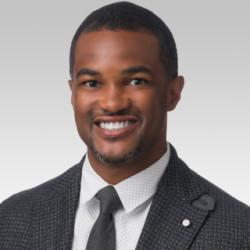The American College of Cardiology held its 2024 Annual Scientific Sessions this past weekend in Atlanta. The energy was high as cardiologists and cardiovascular team members from around the world gathered to hear the latest and greatest in cardiovascular science, receive unparalleled education from top clinicians and researchers in the field, and fellowship with one another. The Georgia World Congress Center buzzed as attendees scurried from session to session and took in the sights and sounds of the main hall. While there was a wealth of interesting science shared throughout the three-day event, three late-breaking clinical trials struck me as most impactful as I took in the eclipse and boarded my flight from Atlanta.
As a heart failure and transplant cardiologist, I spend my days (and some sleepless nights) trying to understand how to best help patients with cardiogenic shock, no matter the etiology. While we are fortunate to have many tools in our toolbox for temporary mechanical circulatory support, trials in cardiogenic shock are difficult to conduct, and more data are needed to help our patients. The DanGer Shock Trial, presented at the ACC24 and simultaneously published in the New England Journal of Medicine, is a trial that gives hope. In the DanGer Shock Trial, 360 patients in cardiogenic shock following an acute ST-elevation MI were randomized to either the Impella CP microaxial flow pump in addition to standard care or standard care alone. The hazard ratio for death from any cause at 180 days was 0.74 (0.55 to 0.99; P = 0.04). This is a major advancement for our patients with acute MI cardiogenic shock. While the device comes with significant risks related to limb ischemia and bleeding, acute MI cardiogenic shock is a highly morbid condition that needs evidence-based interventions to help. One of the most striking and inspiring aspects of the trial was the ten-year enrollment period. It displays for all of us that we should be relentless in our pursuit of science for the betterment of our patients.
The second trial that made waves at the Scientific Sessions was the STEP-HFpEF DM Trial. In this trial, 616 participants with heart failure with preserved ejection fraction (HFpEF), Type 2 diabetes, and obesity were randomized to either semaglutide or placebo. Compared to placebo, the group treated with semaglutide saw greater improvements in heart failure-related symptoms as measured by KCCQ-CSS and more weight loss. Obesity is a highly prevalent and complex disease state that requires a multi-pronged approach to treatment. Additionally, in the heart failure space, we are thirsty for ways to help patients with obesity-related HFpEF lose weight and feel better. Semaglutide — and medicines like it — appear to be true game changers in this space. The next step will be ensuring access to these medications — and those like them — so that all patients who need them can benefit.
The third (and final) trial I’d like to highlight is the REDUCE-AMI Trial. In this registry-nested, open-label trial performed in Sweden, Estonia, and New Zealand, 5,020 patients who had an acute MI, underwent coronary angiography, and had an ejection fraction greater than or equal to 50% were randomized to either beta-blocker therapy or no beta-blocker therapy. Interestingly, beta-blocker use compared to no use did not lead to a lower risk of the composite primary end point of death from any cause or new MI. This study has important implications. One, the issue of polypharmacy is increasingly prevalent. Studies that can help us tailor therapies and potentially avoid over-medicating are increasingly important. More broadly, though, science and medicine are ever-evolving. As such, we should take time to challenge dogma — with randomized clinical trials — as regularly as possible as the landscape changes. Like any trial, there are caveats. While the beta blocker still has its place, particularly for patients with lower ejection fractions and certainly as part of guideline-directed medical therapy for heart failure, this is a step forward for the field and our patients.
In closing, the ACC Scientific Sessions is always an inspiring reminder to invest in the future of cardiology. Trainees at the conference did an amazing job presenting their work and fielding questions from visionaries in the field. The future of science is in great hands with our medical students, residents, and fellows-in-training pushing the field forward! I look forward to next year’s conference and seeing more advancements that will benefit patients with cardiovascular disease.
Dr. Youmans has no conflicts of interest to report.
Image by GoodStudio / Shutterstock







